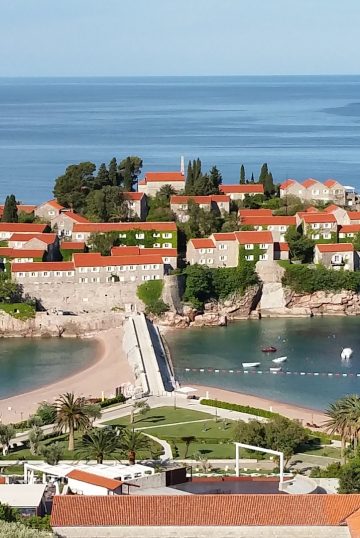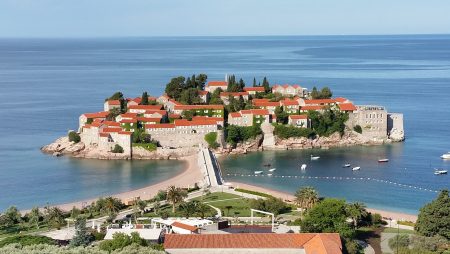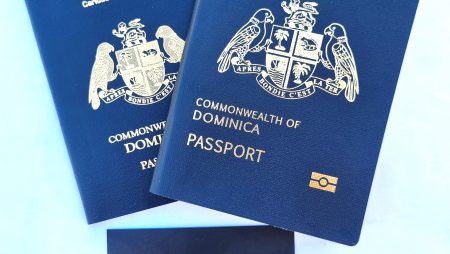
Citizenship by Investment Update: What is New in 2022

It is undeniable that the past two years of the pandemic have been uniquely challenging for the world’s economy and people in all corners of the globe. Amid the upheaval COVID-19 has brought to our lives, it has also fueled a never-before-seen demand for second passports. Repeated lockdowns and travel bans resulting in the lack of mobility, have driven an interest for citizenship by investment (CBI). In response to this, a number of jurisdictions running CBI programs have offered more beneficial terms to attract potential investors. Many offers terminated at the end of 2021, however due to their major success, some of them have been extended to 2022. Besides, a few other changes have taken place in the CBI industry, setting new requirements for qualifying applicants.
In the wake of the COVID-19 pandemic, the demand for global citizenships has soared, with wealthy people seeking safety and freedom of movement through citizenship by investment programs. In striving to eliminate the risks and restrictions the pandemic has placed upon families, businesses, and lifestyles, affluent investors are looking for passports of other countries more than ever before. Jurisdictions operating CBI programs, in turn, have proposed more advantageous terms of participation, such as reduced prices and even new profitable investment opportunities.
Thus, St Kitts and Nevis and Dominica introduced significant discounts for families under their CBI contribution options, and St Lucia launched an unprecedented limited-time offer named the COVID-19 Relief Bond. This investment option requires eligible applicants to purchase non-interest-bearing government bonds for only $250,000 (instead of the previous $500,000), which is refunded at the full amount after the bond holding period is over. The holding period is five years for a single applicant, six years for the main applicant with a spouse, and seven years for a family of up to four people; however, it can be reduced to a minimum of five years if investing $300,000.
The COVID-19 Relief Bond option was created in 2020 to encourage foreign investment and was due to expire at the end of the year, however, it gained such overwhelming success among investors that it was extended through 2021. Any further extension was in question for some time, and it has recently been announced that St Lucia decided to introduce another one-year prolongation, making the offer valid until 31 December 2022. With the COVID-19 Relief Bond being half-price and fully refundable, St Lucia’s citizenship by investment program is one of the most affordable and yet beneficial in the world. Besides, it provides visa-free access to over 130 states, an attractive tax environment, and the opportunity to hold dual citizenship.
Moreover, St Lucia is not the only country that has extended its CBI program terms lately: Montenegro has also brought about a year’s prolongation to its citizenship by investment scheme. Launched in 2019, the program was initially set for a three-year period and available until the end of 2021, with a cap of 2,000 applications. The government of Montenegro stated that the program would no longer be renewed, yet in the run-up to its expiration, another extension has been announced. The Montenegrin CBI program will continue to operate until 31 December 2022, with some changes to the initial program:
- The investment minimum has been increased. Previously, qualifying applicants were required to invest €250,000 or €450,000 into real estate and €100,000 into the government fund; from now on, they also have to donate additional €100,000 to the Innovation Fund, making the total contribution amount €200,000. Therefore, the new investment minimum starts from €450,000;
- Applicants must provide a bank guarantee of at least 50% of the investment amount within 30 days after submitting their citizenship application;
- Any new real estate projects will not be approved by the government under the CBI program. This means that investors will have to choose only among the existing developments.
Though the program’s requirements have become stricter, it is still highly competitive due to the numerous advantages: low taxes, visa-free regime with more than 120 countries, the ability to receive the E-2 visa to the USA, and many others. In addition, Montenegro is on track to membership in the European Union (EU), therefore there is a strong possibility that those investors who invest now will automatically become EU citizens after 2025.
It must be mentioned that the CBI programs of some other countries have undergone changes as well. For example, in a bid to support the local currency, Turkey has adopted a regulation of making investments in the Turkish lira. Earlier eligible applicants were able to invest in any foreign currency at the amount equivalent to the required investment minimum, but starting from 2022, they will have to use Turkish lira only. The investment thresholds, however, remain the same, pegged to the US dollar amounts: $250,000 under the real estate option; $500,000 for purchase of government bonds; $500,000 for a bank deposit; $500,000 for acquiring shares in real estate investment funds (REIFs) or venture capital investment funds (VCIFs) of Turkey. Prior to the completion of the investment, applicants will need to convert their funds to the local currency.
This measure is aimed to stabilise and strengthen the country’s economy, which eventually may have a positive effect on the rank of Turkish passport. The citizenship by investment program of Turkey brings many benefits for investors, such as high-quality healthcare which is especially important due to the pandemic, visa-free access to over 110 countries, a facilitated route for relocation to the USA, and expanded business opportunities.
Another noteworthy change concerns Dominica’s CBI program. Following the footsteps of some other Caribbean states, Dominica started issuing new biometric electronic passports (e-passports) to its citizens. The e-passport has an electronic microprocessor chip embedded inside, that contains a photograph, personal information, and biometric data necessary to verify the passport holder’s identity. The introduction of e-passports is intended to enhance border security and prevent counterfeiting and fraud. It had been announced in 2021 that all nationals of Dominica including CBI citizens were required to switch to biometric passports from machine-readable ones until 30 July 2023. However, in January 2022 the Minister for National Security and Home Affairs in Dominica announced that the deadline for changing to a biometric passport has been moved to 31 August 2022. This announcement gives the Dominican citizens just over 6 months to apply for new biometric passports.
Currently, citizens of Dominica enjoy visa-free travel to more than 130 countries, including the EU, the Schengen Area, Singapore, and China, and e-passports are going to make their travel easier and safer.
Interested in obtaining citizenship of St Lucia, Montenegro, Turkey, or Dominica? Do not hesitate to contact GLS Private Office. Whatever your request may be, we will be glad to answer your questions and provide you with all possible assistance. Our experienced team will offer tailored solutions based on your wishes and needs. We also provide ancillary services, thus if you need assistance with opening an account in the Turkish bank or receiving a new e-passport of Dominica instead of the regular one, we will be happy to arrange everything in the most convenient way for you.



